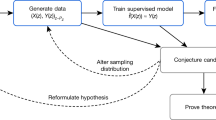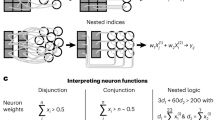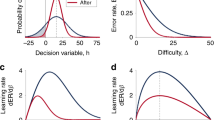Abstract
PROF. JOHN PERRY has asked me to write something in criticism of the views he has lately expressed about the teaching of mathematics. I am inclined to ask, What is the use? He knows my views pretty well, and others too; and those who don't can learn them if they want to by buying my books. That is the best way, as it brings in one-and-threepences, and so does some good. I think there is a great deal to be said on both sides, and that if you are a born logic-chopper you will think differently from Faraday. The subject is too large, and I will only offer a few remarks about the teaching of geometry, based upon my own experience and observations. Euclid is the worst. It is shocking that young people should be addling their brains over mere logical subtleties, trying to understand the proof of one obvious fact in terms of something equally, or, it may be, not quite so obvious, and conceiving a profound dislike for mathematics, when they might be learning geometry, a most important fundamental subject, which can be made very interesting and instructive. I hold the view that it is essentially an experimental science, like any other, and should be taught observationally, descriptively and experimentally in the first place. The teaching should be a natural continuation of that education in geometry which every child undergoes by contact with his surroundings, only, of course, made definite and purposeful. It should be a teaching of the broad facts of geometry as they really exist, so as to impart an all-round knowledge of the subject It should be Solid as well as Plane; the sphere and cube, &c., as well as the usual circle and square; models, sections, diagrams, compasses, rulers, &c., every aid that is useful and practical should be given. And it should be quantitative as well. The value of π should be measured; it may be done to a high degree of accuracy. So with the area of the circle, ellipse and all sorts of other things. The famous 47th. The boy who really measures and finds it true will have grasped the fact far better than by a logical demonstration without adequate experimental knowledge; for it happens that boys, who are generally very stupid in abstract ideas, learn a demonstration without knowing what it is all about in an intelligent manner. It may be said by logicians that you do not prove anything in this way. I differ. It might equally well be said that you prove nothing by any physical measurements. You have really proved the most important part. What a so-called rigorous proof amounts to is only this, that by limitation and substitution, arguing about abstract perfect circles, &c., replacing the practical ones, you can be as precise as you please. Now when a boy has learnt geometry, and has become competent to reason about its connections, he may pass on to the theory of the subject. Even then it should not be in Euclidean style; let the invaluable assistance of arithmetic and algebra be invoked, and the most useful idea of the vector be made prominent. I feel quite certain that I am right in this question of the teaching of geometry, having gone through it at school, where I made the closest observations on the effect of Euclid upon the rest of them. It was a sad farce, though conducted by a conscientious, hard-working teacher. Two or three followed, and were made temporarily into conceited logic-choppers, contradicting their parents; the effect upon most of the rest was disheartening and demoralising. I also feel quite certain about the experiential and experimental basis of space geometry, though that opinion has been of slow growth. If I understand them rightly, it is generally believed by mathematicians that geometry is pre-existent in the human mind, and that all we do is to look at nature and observe an approximate resemblance to the properties of the ideal space. You might assert the same preexistence of dynamics or chemistry. I think it is a complete reversal of the natural order of ideas. It seems to me that geometry is only pre-existent in this limited sense; that since we are the children of many fathers and mothers, all of whom grew up and developed their minds (so far as they went) in contact with nature, of which they were a part, so our brains have grown to suit. So the child takes in the facts of space geometry naturally and easily. The experience of past generations makes the acquisition of present experience easier, and so it comes about that we cannot help seeing it. But it is all experience, after all; although learned philosophers, by long, long thinking over the theory of groups and other abstruse high developments, may perhaps come to what I think is a sort of self-deception, and think that their geometry is pre-existent in themselves, whilst nature's is only a bad copy. Like the old Indian pundit, whose name was something like Bhatravistra, who, after fifty years inward contemplation, discovered God;—where—it would not be polite to mention.
This is a preview of subscription content, access via your institution
Access options
Subscribe to this journal
Receive 51 print issues and online access
$199.00 per year
only $3.90 per issue
Buy this article
- Purchase on Springer Link
- Instant access to full article PDF
Prices may be subject to local taxes which are calculated during checkout
Similar content being viewed by others
Rights and permissions
About this article
Cite this article
HEAVISIDE, O. The Teaching of Mathematics. Nature 62, 548–549 (1900). https://doi.org/10.1038/062548c0
Issue Date:
DOI: https://doi.org/10.1038/062548c0
Comments
By submitting a comment you agree to abide by our Terms and Community Guidelines. If you find something abusive or that does not comply with our terms or guidelines please flag it as inappropriate.



